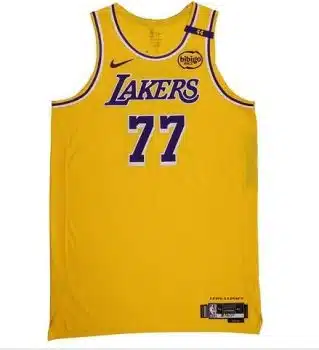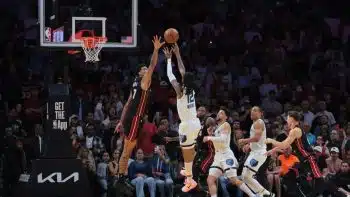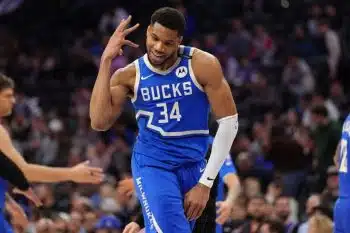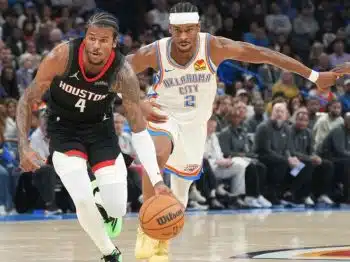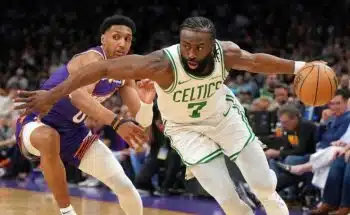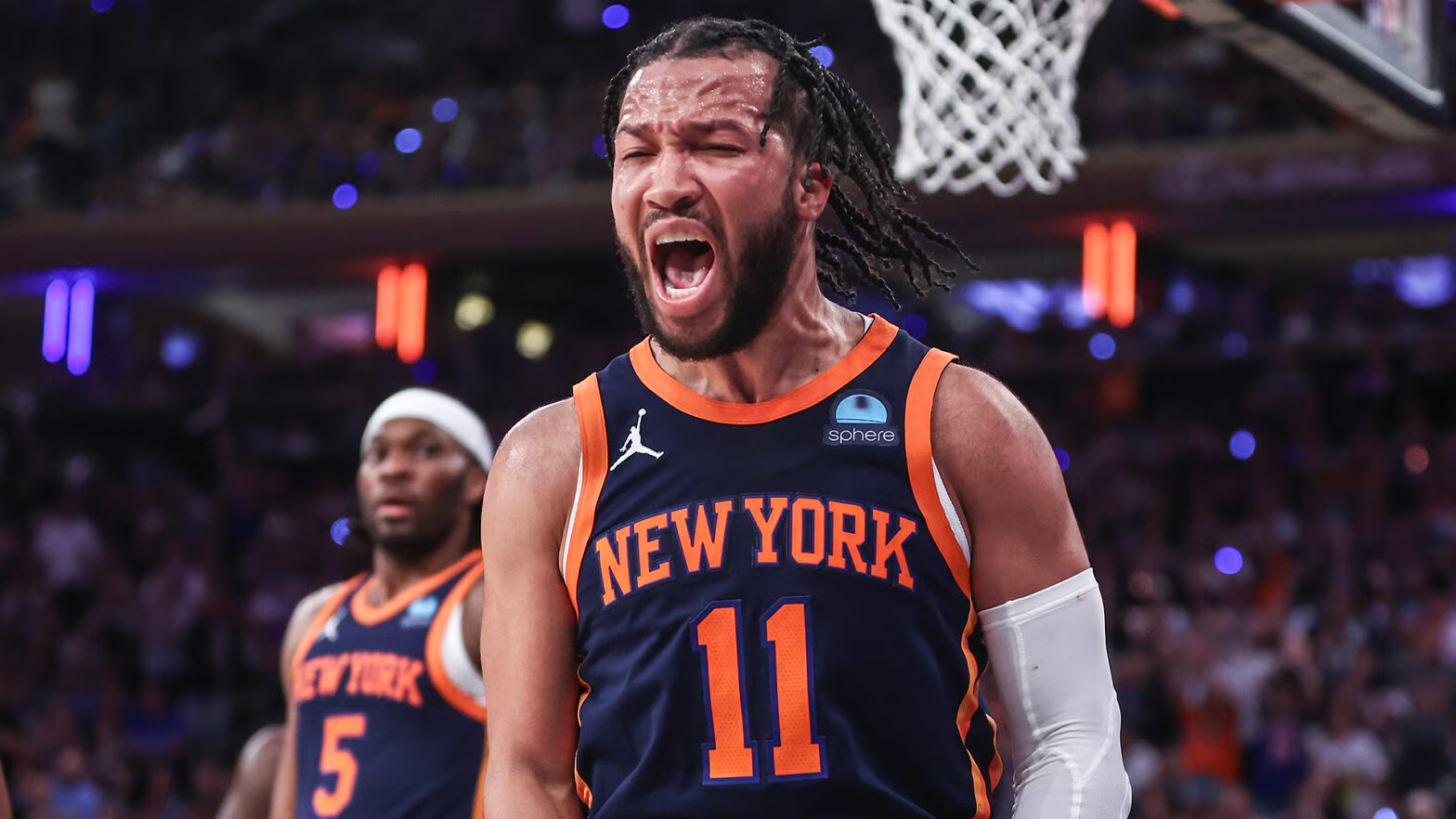NBA
On the Fortune and Future of the Grizzlies
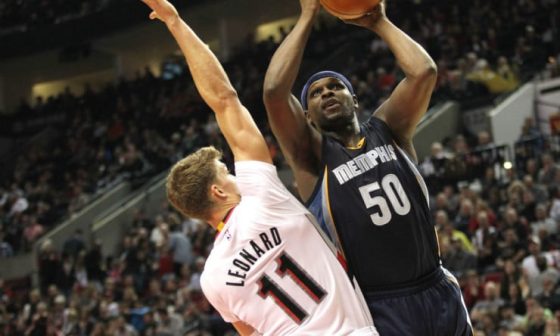
The raw win-loss standings at a given point in an NBA season are quite often an incomplete cumulative representation of team quality. They don’t take schedule or health into account, or a skewed home-away distribution. They offer limited data points by which to judge a team; one focus of a movement many refer to as “analytics” is using some relatively simple arithmetic to widen the available data points, producing a more accurate and predictive way of evaluating teams and players.
By a few of the simplest such metrics available, the 2015-16 Memphis Grizzlies are among the “luckiest” teams of all-time. That term can be thrown around loosely, so a more firm definition here: The gap between what simple contextual metrics project a team like Memphis’ record to be and what their record actually is checks in as one of the largest positive gaps in recent observable league history.
Simple Rating System (SRS) is a metric housed primarily on basketball-reference.com, and gives a team rating based on season-long point differential while accounting for team strength of schedule. Imagine a team that had only played two games – winning one contest by one point but losing the other by 40. Despite being .500 in the standings, this team would have a bad SRS score for these two games, because the metric cares only about points (of which there are many more than wins or losses, and therefore a much larger sample with which to judge). Adjusting for strength of schedule adds another layer of control for exterior factors that, on balance, are expected to average out over the course of a full year.
Entering play Monday night (as are all statistics henceforth unless otherwise noted), the Grizzlies’ SRS score was -0.92. Zero is average, meaning this is well below par. Those paying attention above and also aware of Memphis’ current record will see the discrepancy: How are the Grizzlies 11 games over .500 if their point differential indicates they should be a below-average team?
As it turns out, this gap between projection and reality is likely the largest in league history. Since 1946-47, no team has ever finished a full season with an SRS rating so low and a winning percentage so high – the Grizzlies’ .586 win rate entering play Monday night was nearly five full percentage points higher than any other team with an SRS at least as negative. Only 22 other teams in nearly 70 years, in a sample of nearly 600 seasons below the SRS threshold, even managed to win at least half their games.
Put another way, the best any of these previous 22 teams ever managed was a 44-38 record, on six separate occasions. The Grizzlies’ pace entering Monday night had them right on track for a 48-34 mark, or four full wins better than any other team with the same level of negative point and schedule indicators.
Some might scoff at the notion that a few simple metrics make Memphis the “luckiest” team of all-time, and they wouldn’t be without ground to stand on. These statistics aren’t complete indicators, and only measure the probability of wins and losses based on a wide data set.
The Grizzlies are 21-11 in games that were within five points anytime in the final five minutes, a win percentage that trails only behemoths Golden State and San Antonio; some would cite elements of good fortune here while others might point to an experienced team well-trained in raising their level down the stretch, and the truth is somewhere in between. There’s certainly something to be said for gutting out close wins frequently, and a few over-the-top stinkers like a 50-point beating at the hands of the Warriors four games into the season set a bad baseline for point-fueled metrics.
Whatever your feelings on luck or skill, these are more than interesting stats; they’re highly relevant to the playoff conversation this season. Based on Pythagorean win expectation – similar to SRS, with no strength of schedule variable included – Memphis projected as a 28-30 team entering Monday night.
In that alternate reality, the Grizzlies would be squarely in the middle of an airtight race for what would then be the five through nine seeds out West, with Portland, Dallas, Houston and Utah all in the mix. As it is, they’re far enough ahead of that pack that missing the playoffs would probably only be possible with a total collapse, though that’s theoretically not out of the question with Marc Gasol presumed done for the year.
Assuming no crazy slide down the stretch, the playoff appearance could have varied effects on the franchise. The most obvious is the protection on the 2016 first-round pick they owe Denver, which is for picks 1-5 and also 15-30. Memphis keeps their pick if they make the playoffs, but almost certainly loses it if they fall out barring some major luck with the ping pong balls. Assuming no pick conveys this year, the protection is limited to just 1-5 in 2017.
Losing the pick obviously feels bad on the surface, and probably is in most scenarios, but the 2017 draft already has a lot of buzz as deeper and more talented than this year’s. A worst-case scenario could see the Grizzlies keep a late teens pick in a down year before forking over a mid-to-late lottery selection in a stronger class if they lose a step on the court next year.
Open to more vague speculation is whether success some might consider unsustainable could lead to a false sense of self from an organizational standpoint. The extreme end of team-building philosophies dictate a sometimes cold realization when a group has hit its collective ceiling, and either a tear down or, at minimum, a pivot. Can the Grizzlies, typically a measured and never-impatient front office, even consider such a drastic route with Gasol locked up to likely his last big deal? Even if they determine with certainty that they’re too far behind the elites to truly compete – a very tough conclusion to reach for a franchise accustomed to consistent success – getting back among the contenders before Big Spain winds things down is a tough proposition. Titles aren’t the only consideration for every franchise, even if they’re orders of magnitude more important than any other single goal for most.
The biggest domino of all is Mike Conley’s impending free agency. A max contract would start in the neighborhood of $25 million, and would ensure Conley and Gasol occupied roughly 40 to 50 percent of the Grizzlies’ cap through the turn of the decade. With good flexibility outside those two moving forward, the right moves could certainly put them squarely in the title conversation, particularly if Conley was generous enough to let Memphis play the market with their cap space before re-signing him with Bird rights this summer.
There’s a flip side, too: Conley and Gasol are great players, but strike out around them and you could be stuck paying a lot of money for the purgatory of a middling NBA team for another half decade. The right names aren’t always available or interested, which of course could be the case whether or not Conley remains in town.
Whether their perhaps-fortunate success this year significantly influences any decisions along the way is nothing more than pure speculation at this point. The Grizzlies have a fascinating line to straddle, something reflected in their approach at the trade deadline, and how they continue to approach it in the league’s anticipated bonanza summer will be worth keeping an eye on.
